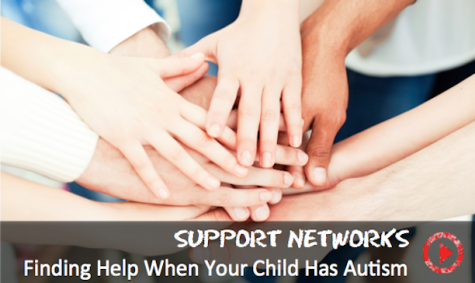A recent report from the Centers for Disease Control and Prevention explains that 1 in 68 children have autism spectrum disorder (ASD). So how do you know if your child has autism and what can you do to help them? Kids In The House has interviewed many experts on the subject to help you raise a healthy and happy child. Here are their top four tips for helping your child with autism succeed:
1. Know the signs for an early diagnosis.
Child neurologist, Jane Tavyev Asher, says she cannot stress the importance of early diagnosis in autism. Reports have shown that early diagnosis has definitely shown to improve outcomes for children. Dr. Asher explains that in your child’s first year of life, it’s important to make sure your child is relating to you. Are they smiling at you? Are they making eye contact? If the answer is no, then take your child to a pediatrician to talk about the possibility of autism and discussing plans to enhance communication skills at this time. “Plenty of live interaction from other people can actually make changes in the brain and make the child want to communicate or learn to communicate even more than they were able to,” says Dr. Asher. “So detecting some of these challenges early on can really make an impact for the child's future outcome if early intervention is started.”
2. Find a good treatment plan for your child.
Every child is different and every autism diagnosis is different. This means that each child needs an individual treatment plan to best help their child succeed. “Parents need to know that there is a range of treatment plans available… and they may have a wider range of choices than they think,” says child psychologist, Dr. Mona Delahooke. Up until recently, treatment plans really only consisted of Applied Behavior Analysis which focused on positive reinforcement. However, recent studies have also shown that things as simple as floor time or pivotal response training can also help your child learn and develop through their difficulties.
3. Make sure you understand their dietary needs.
Children with autism are also more sensitive to certain things including foods. Pediatrician, Dr. Jerry Kartzinel, explains that blood testing and skin testing can help delineate which foods your child should avoid. “The most common foods to remove if you do not have access to getting testing would be those foods that contain gluten, which is a part of our flours, and dairy, anything that comes from a cow´s udder, as well as removing corn and corn products, corn syrup, corn starch, as well as the citrus,” explains Dr. Kartzinel.
4. Seek out a good support system.
Raising a child with special needs can also be overwhelming at times so it is important to surround yourself with a good support system. Your friends and family can help you when you feel like your are losing your patience. Support groups can also be a great way to talk with other parents who are facing similar challenges. “Finding a support group, whether it’s online or whether it’s local that you can go to is so key, because they’re going to share in the experience with you,” says Stephanie Rotondi, mother and autism advocate. “They’ve been there, they know what to do, they can share recourses and they’re just going help to support you as the parent being strong for your child.”

Do you still have questions about raising a child with special needs? Join our #KITHangout “AUTISM DISCUSSION: Raising A Child With Special Needs” on Thursday, May 14th at 12:30pm PT! It's a Google Hangout hosted by Kids In The House with experts Dr. Mona Delahooke, Dr. Jane Tavyev Asher, Dr. Gil Tippy, Dr. Rita Eichenstein who will be answering your questions live. Click here to start asking your questions!





































